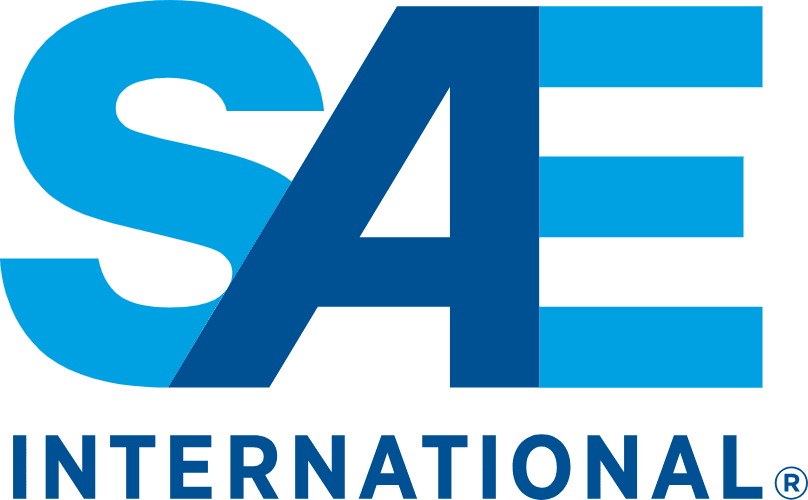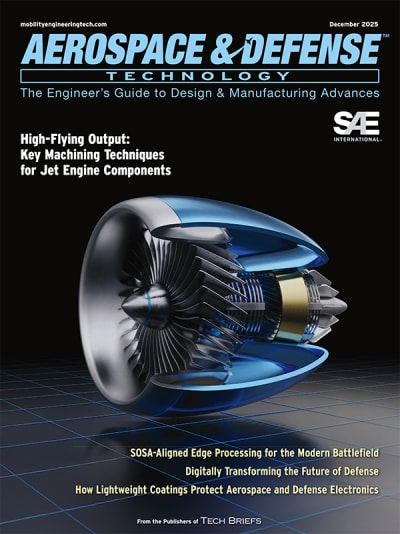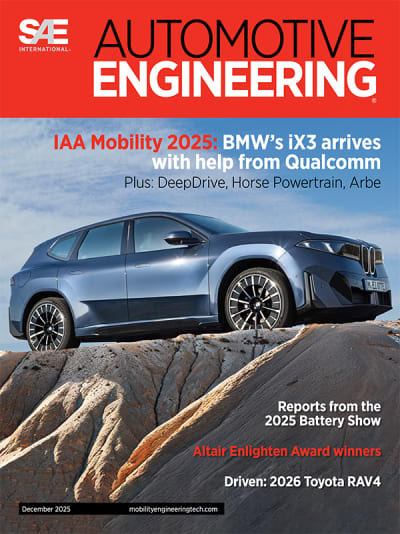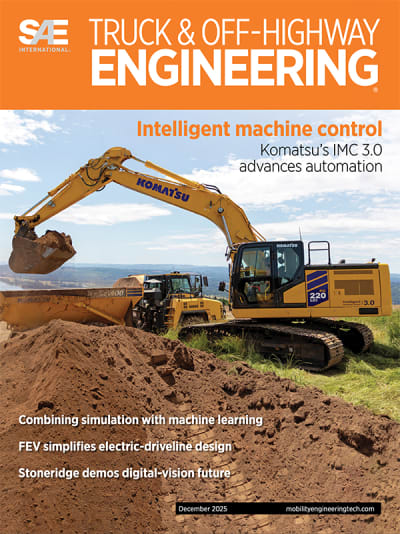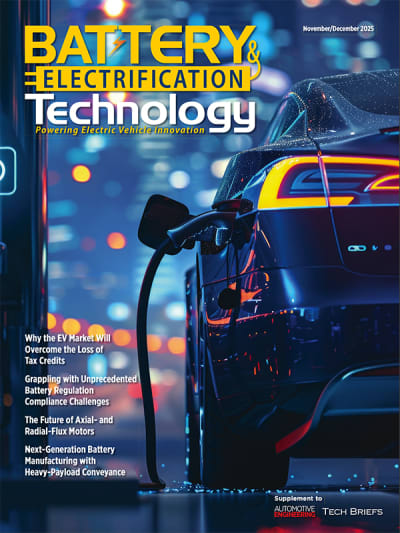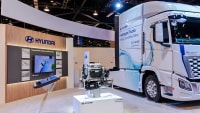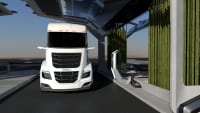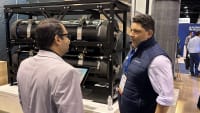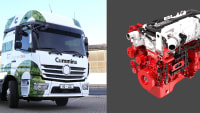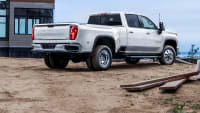Tech – and Tariffs – Top of Mind at Tradeshows
Experts at Bauma, ACT Expo and SAE WCX address how unpredictable tariffs might impact the off-highway and mobility technology sectors.
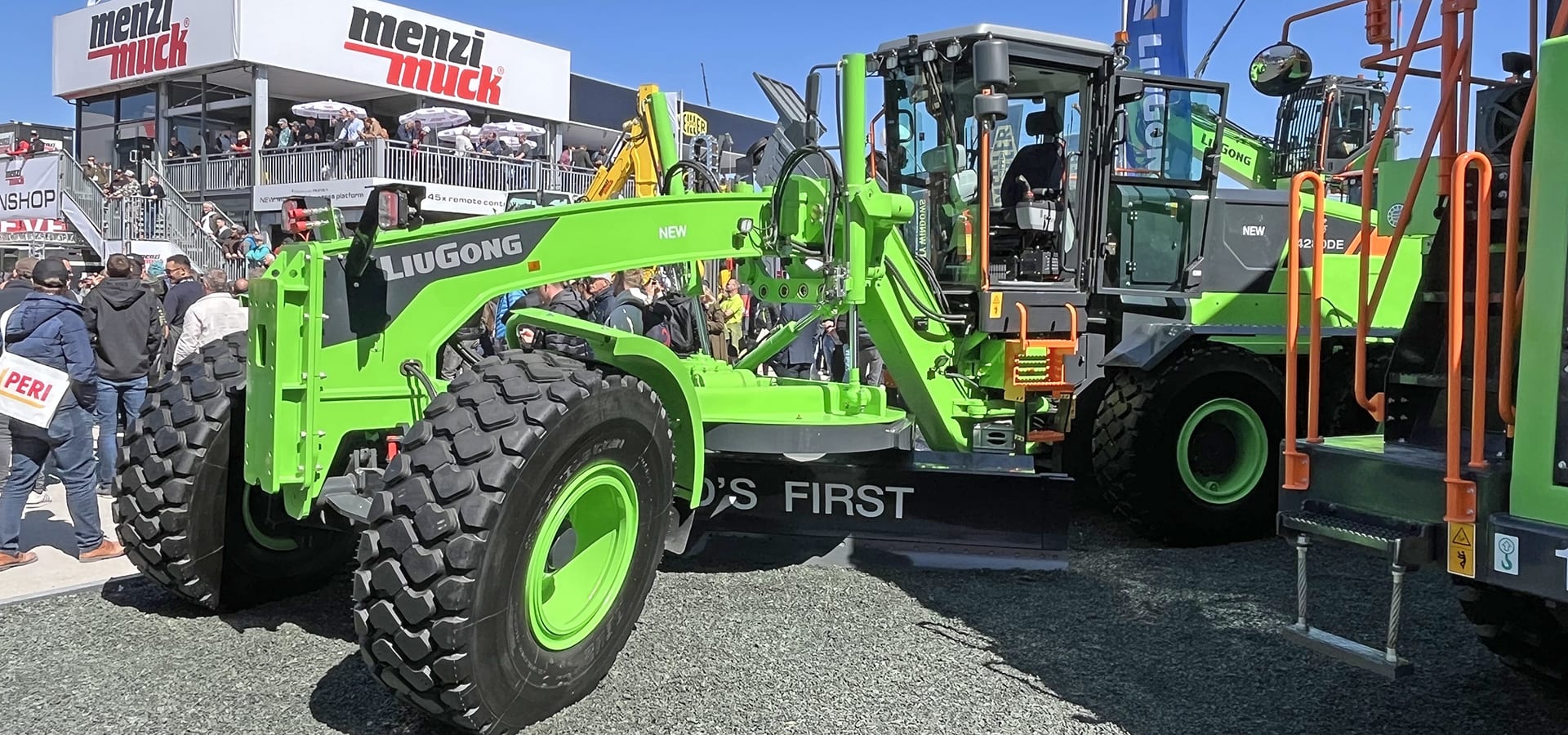
April saw two major tradeshows take place, playing host to numerous advanced vehicle and technology reveals from global OEMs and suppliers – some of which are detailed on this site. Bauma 2025 in Munich, Germany, a leading trade fair for the construction and mining vehicle industries, saw around 600,000 visitors from more than 200 countries and regions, as well as over 3,600 exhibitors from 57 nations. Billed as the largest advanced commercial vehicle technology show, ACT Expo 2025 engaged more than 12,000 stakeholders from at least 54 countries, including over 2,700 fleet operators.
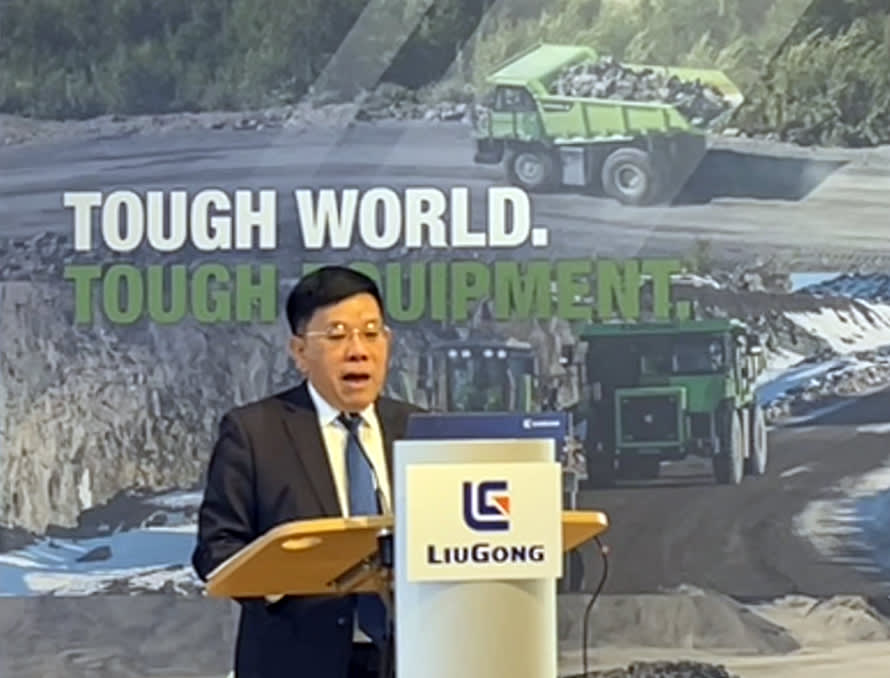
But just as present as the technology itself at these major industry events was the ongoing uncertainty stemming from the Trump administration’s volatile trade policy announced on April 2 involving steep tariffs that have been adjusted frequently in the ensuing weeks.
Chinese manufacturer LiuGong held a press conference on April 7 at Bauma offering insights into the company’s R&D and product strategy, particularly for the European market. LiuGong introduced four new battery-electric vehicles in Munich, including what it says is the world’s first 24-tonne all-electric motor grader. The 4280DE is equipped with a 423-kWh battery and reportedly delivers 8 to 10 hours of operation on a single charge.
That was the tech. Then came the tariff talk. Zeng Guang’an, chairman and CEO of Guangxi LiuGong Machinery, responded to a question about its plans for the North American market. “We do have enough manufacturing in the world. What we do, we focus on Mexico and Canada, too. But we are keeping a strong presence in the U.S.,” he said. LiuGong North America is located in Katy, Texas.
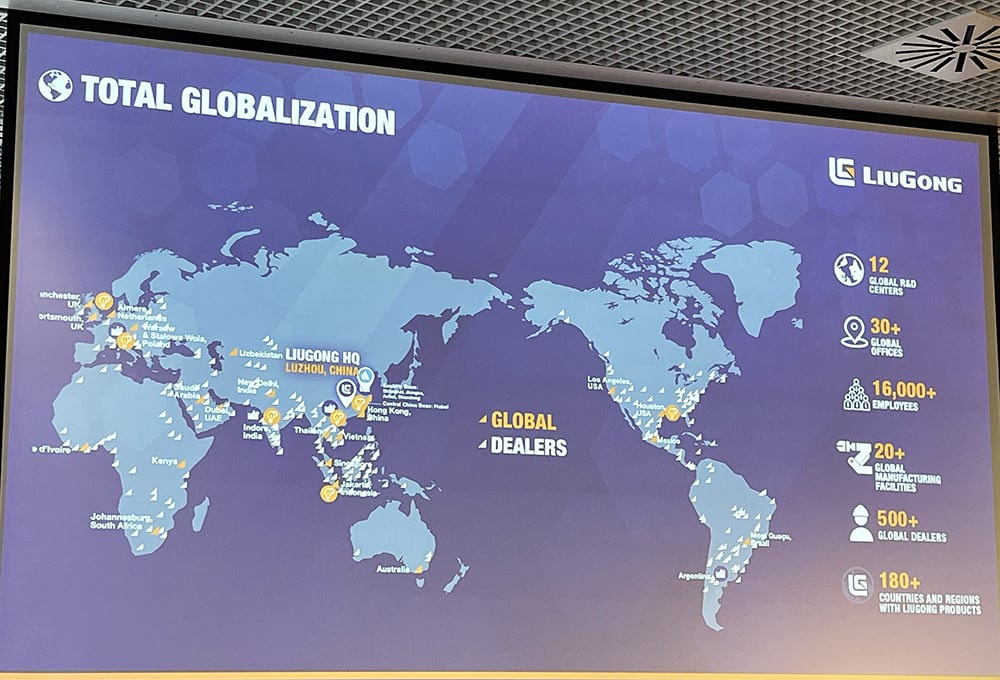
“[There are] too many taxes on Chinese agreements, but the world will change – every four years there’s a new President,” Guang’an added. “But the U.S. is valuable in the market, and we already have solid customers. We must protect and support existing agreements. So this is really a challenge.”
The “world” has already changed since Bauma. A “reset” in trade terms between the U.S. and China announced on May 12 saw both countries lower tariffs by 115%. The U.S. lowered tariffs to 30% and China’s stand at 10% – for now.
During an ACT Expo panel session on batteries titled “Cells to Solutions,” Trevor Grant, cell development manager for Infinity battery maker Electrovaya, said it would be exceedingly difficult to produce cells in the U.S. unless they come with some sort of competitive advantage, writes senior editor Chris Clonts in his detailed coverage of the session.
“The customer needs a reason to be buying the cell. If you’re trying to produce the same cell domestically, there’s no reason because it’s the same cell, just 50 percent more expensive,” Grant said. “So our focus really is on the cell technology side. The customer’s reason to buy is either for tariff reasons, greenhouse reasons or technology reasons.”
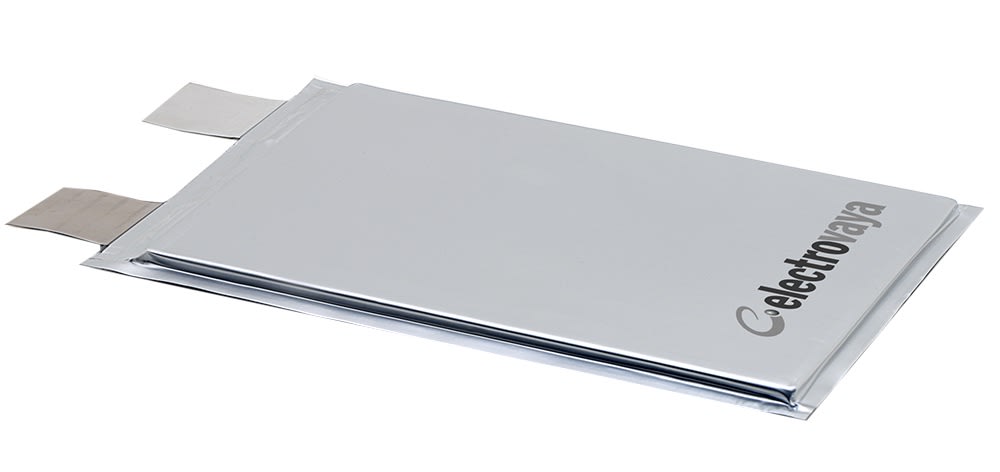
Clonts also discussed hydrogen fuel cells with Tarek Abdel-Baset, Forvia’s chief engineer for hydrogen storage systems, at ACT Expo. Asked about the impact of tariffs, Abdel-Baset took a rational approach to the situation: “That’s nothing to do specifically with our industry, right? That’s affecting everybody across every industry. That’ll settle out at some point, right? We’ve been through all these shocks. We know as an auto industry, we’re going to get through these. It’ll settle out.”
Flexibility will be needed, and tested, to navigate this era of evolving tariffs, especially until it does settle out – perhaps with the next administration, if not before. As Jordan Choby, group VP of powertrain for Toyota Motor North America R&D, noted in April during an SAE WCX panel session on propulsion strategies, “Powertrain cycles are longer than Presidential cycles.”
Top Stories
INSIDERRF & Microwave Electronics
![]() FAA to Replace Aging Network of Ground-Based Radars
FAA to Replace Aging Network of Ground-Based Radars
PodcastsDefense
![]() A New Additive Manufacturing Accelerator for the U.S. Navy in Guam
A New Additive Manufacturing Accelerator for the U.S. Navy in Guam
NewsSoftware
![]() Rewriting the Engineer’s Playbook: What OEMs Must Do to Spin the AI Flywheel
Rewriting the Engineer’s Playbook: What OEMs Must Do to Spin the AI Flywheel
Road ReadyPower
![]() 2026 Toyota RAV4 Review: All Hybrid, All the Time
2026 Toyota RAV4 Review: All Hybrid, All the Time
INSIDERDefense
![]() F-22 Pilot Controls Drone With Tablet
F-22 Pilot Controls Drone With Tablet
INSIDERRF & Microwave Electronics
![]() L3Harris Starts Low Rate Production Of New F-16 Viper Shield
L3Harris Starts Low Rate Production Of New F-16 Viper Shield
Webcasts
Energy
![]() Hydrogen Engines Are Heating Up for Heavy Duty
Hydrogen Engines Are Heating Up for Heavy Duty
Energy
![]() SAE Automotive Podcast: Solid-State Batteries
SAE Automotive Podcast: Solid-State Batteries
Power
![]() SAE Automotive Engineering Podcast: Additive Manufacturing
SAE Automotive Engineering Podcast: Additive Manufacturing
Aerospace
![]() A New Approach to Manufacturing Machine Connectivity for the Air Force
A New Approach to Manufacturing Machine Connectivity for the Air Force
Software
![]() Optimizing Production Processes with the Virtual Twin
Optimizing Production Processes with the Virtual Twin
